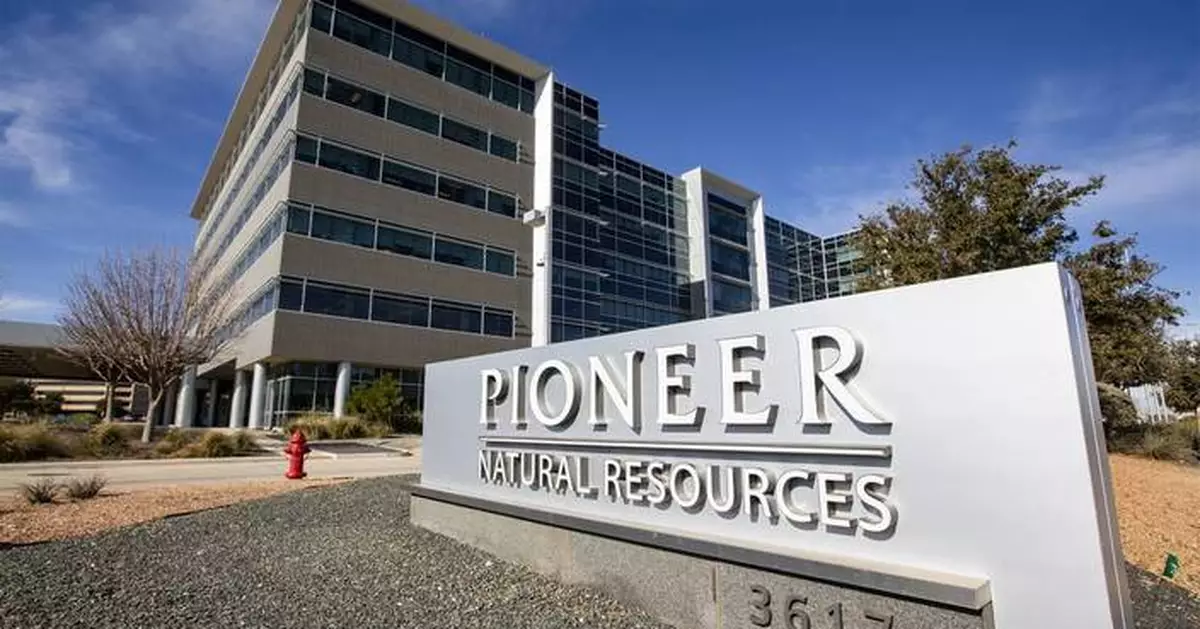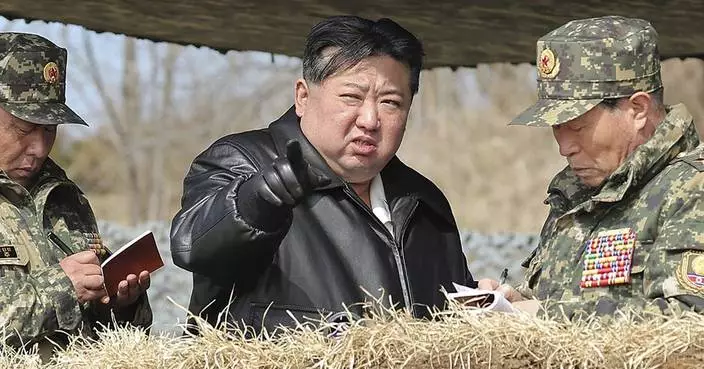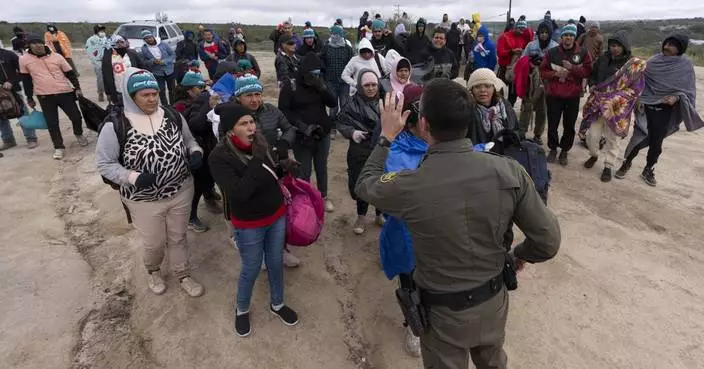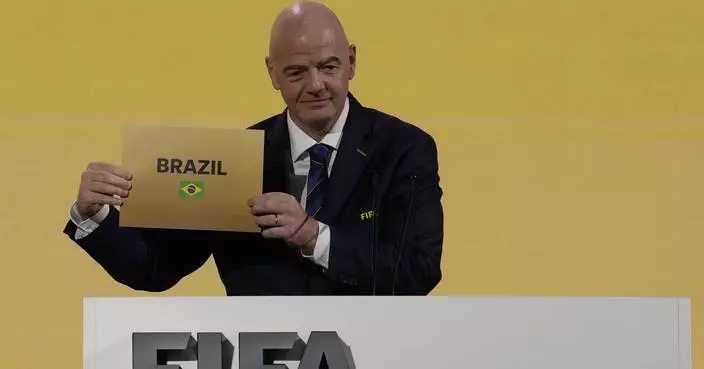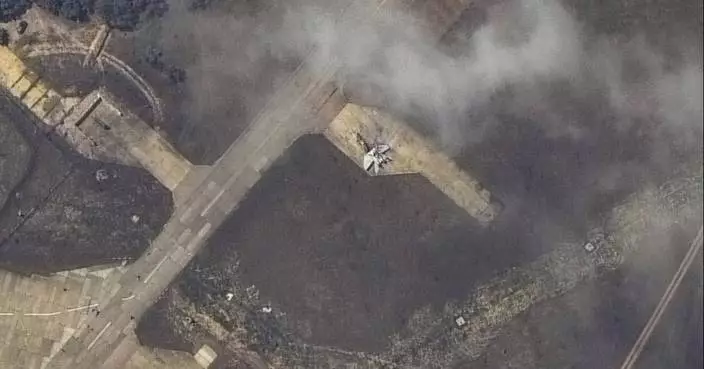WASHINGTON (AP) — Exxon Mobil's $60 billion deal to buy Pioneer Natural Resources on Thursday received clearance from the Federal Trade Commission, but the former CEO of Pioneer was barred from joining the new company's board of directors.
The FTC said Thursday that Scott Sheffield, who founded Pioneer in 1997, colluded with OPEC and OPEC+ to potentially raise crude oil prices. Sheffield retired from the company in 2016, but he returned as president and CEO in 2019, served as CEO from 2021 to 2023, and continues to serve on the board. Since Jan. 1, he has served as special adviser to the company’s chief executive.
“Through public statements, text messages, in-person meetings, WhatsApp conversations and other communications while at Pioneer, Sheffield sought to align oil production across the Permian Basin in West Texas and New Mexico with OPEC+,” according to the FTC. It proposed a consent order that Exxon won't appoint any Pioneer employee, with a few exceptions, to its board.
Dallas-based Pioneer said in a statement it disagreed with the allegations but would not impede closing of the merger, which was announced in October 2023.
“Sheffield and Pioneer believe that the FTC’s complaint reflects a fundamental misunderstanding of the U.S. and global oil markets and misreads the nature and intent of Mr. Sheffield’s actions,” the company said.
Senate Majority Leader Chuck Schumer, D-N.Y., said it was “disappointing that FTC is making the same mistake they made 25 years ago when I warned about the Exxon and Mobil merger in 1999.”
Schumer and 22 other Democratic senators had urged the FTC to investigate the deal and a separate merger between Chevron and Hess, saying they could lead to higher prices, hurt competition and force families to pay more at the pump.
The deal with Pioneer vastly expands Exxon’s presence in the Permian Basin, a huge oilfield that straddles the border between Texas and New Mexico. Pioneer’s more than 850,000 net acres in the Midland Basin will be combined with Exxon’s 570,000 net acres in the Delaware and Midland Basin, nearly contiguous fields that will allow the combined company to trim costs.
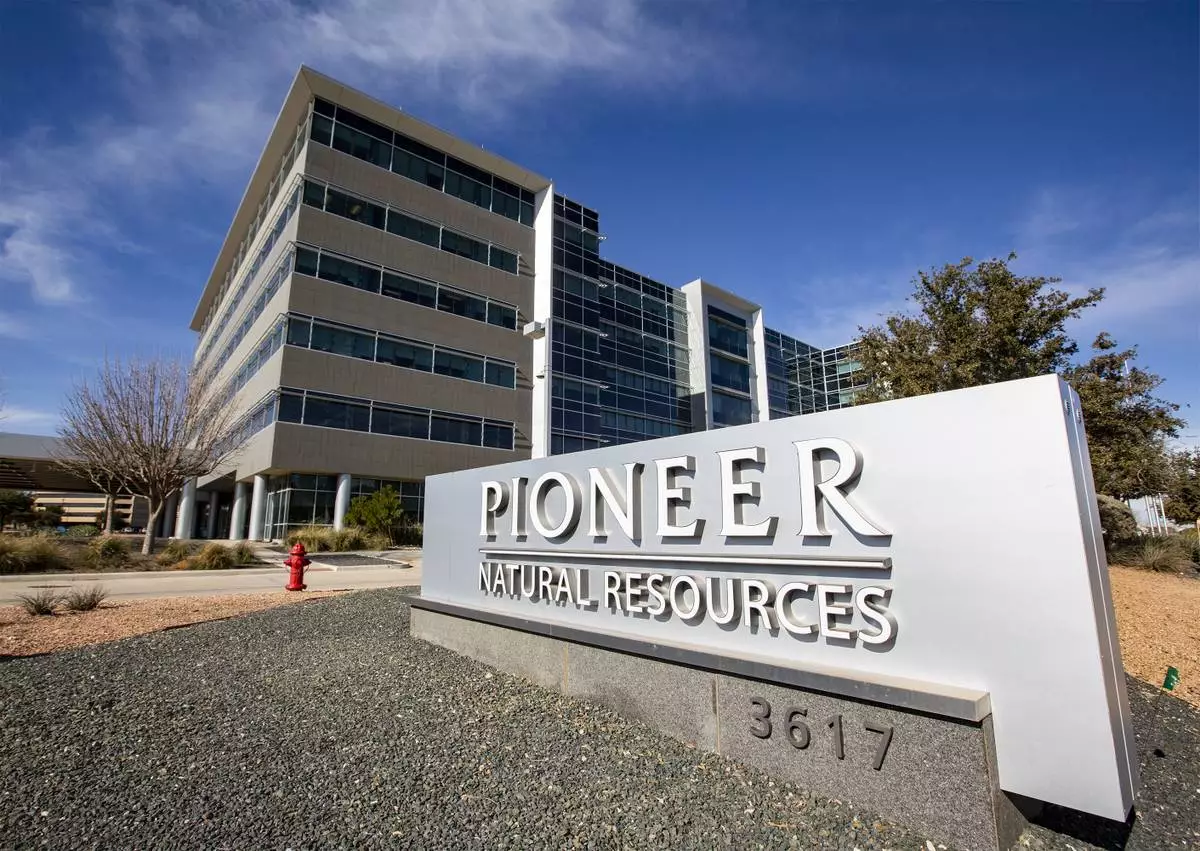
FILE - Pioneer Natural Resources Midland headquarters office is shown on Jan. 13, 2021, in Midland, Texas. Exxon Mobil’s $60 billion deal to buy Pioneer Natural Resources has received clearance from the Federal Trade Commission, but the former CEO of Pioneer was barred from joining the new company’s board of directors. The FTC said Thursday, May 2, 2024 that Scott Sheffield colluded with OPEC and OPEC+ to potentially raise crude oil prices. (Jacob Ford/Odessa American via AP, File)
CAPE TOWN, South Africa (AP) — South Africa's election will determine how weary the country has become of the ruling African National Congress party that has been in power since the end of the apartheid system of white minority rule 30 years ago.
President Cyril Ramaphosa and the ANC are struggling to keep their parliamentary majority and opinion polls predict that the party will likely receive less than 50% of the national vote for the first time in the May 29 election.
That doesn't mean that the beleaguered ANC will be out of power in Africa's most advanced economy.
Even as the famous organization once led by Nelson Mandela has seen a decline in its popularity, no one has risen to a position to replace it. Instead, South Africans who have turned away from the ANC have gone looking for answers among an array of opposition parties.
So, the ANC is still expected to gain the largest share of votes. But without an outright majority, it would need to form a coalition to stay in government and keep Ramaphosa for a second and final term as president. For a key country on the African continent, that might bring new complications, given some recent coalitions at local level have been spectacular failures.
While most South Africans appear ready to register their disgruntlement with the ANC in a defining moment, a coalition government may not easily solve the country's big problems, which include the world’s highest levels of unemployment and inequality.
South Africans don't vote directly for their president, but rather decide the makeup of Parliament, which is called the National Assembly. They do that by choosing parties and those parties get seats in Parliament according to their share of the national vote. The 400-member National Assembly then elects the president, meaning whichever party has a majority chooses the head of state.
That has always been the ANC since the first all-race elections in 1994, but this time it may need to strike agreements with other parties to get the required 201 votes from lawmakers to reelect the 71-year-old Ramaphosa and form a government.
The election effectively starts on Friday and Saturday, when South African citizens living overseas vote in embassies and foreign missions. The main election will be held on May 29 across all nine provinces. It will decide the makeup of both the national and provincial legislatures.
Just over 27 million of the population of 62 million are registered to vote in what is only the country's seventh fully democratic national election since apartheid was dismantled.
There are 70 political parties registered for the vote, the most ever, and independent candidates will be allowed to stand for the first time.
The ANC's fate is the headline story: Ramaphosa is the party's leader and the face of its campaign. The main opposition is the centrist Democratic Alliance, or DA. It has entered into an agreement with some smaller parties in the hope that their combined vote might force the ANC out of government completely. Polls indicate they are some way off that mark.
The far-left Economic Freedom Fighters, or EFF, is the third biggest party and led by Julius Malema, a fiery former ANC youth leader.
The DA won around 20% in the last national election and the EFF 10% to the ANC's 57.5%. Neither opposition party appears to have significantly increased in popularity.
That's largely because of the dozens of other parties, many of them new, that have captured small shares. While 80% of South Africa’s population is Black, it is a multi-racial, multi-cultural society, with five defined racial groups, many ethnicities and 12 official languages. An equally diverse political picture is beginning to appear.
Of the new parties, uMkhonto weSizwe (which means Spear of the Nation) has gained the most attention because it is led by former South African President Jacob Zuma, who has turned his back on the ANC he once led in a bitter battle with Ramaphosa, the man who replaced him.
Unemployment and poverty stand out as the most pressing issues for the majority of people. While South Africa is regarded as Africa's most advanced country, its contradictions are stark. It also has an unemployment rate of 32% — the highest in the world — and more than half of South Africans are living in poverty, according to the World Bank.
That has driven most of the discontent as millions of the poor Black majority feel the ANC has not improved their lives sufficiently three decades after apartheid, which brutally oppressed Black people in favor of the white minority.
Other prominent election issues that are seen as pushing voters away from the ANC are the high rate of violent crime, multiple government corruption scandals over the years, the failure of some basic government services and a crisis within the state-owned electricity supplier that has led to nationwide blackouts at regular intervals to conserve power. The blackouts have eased ahead of the election but they angered people and further damaged a struggling economy.
This story has been corrected to show the ANC won 57.5% of the vote in the last national election, not 62%.
AP Africa news: https://apnews.com/hub/africa
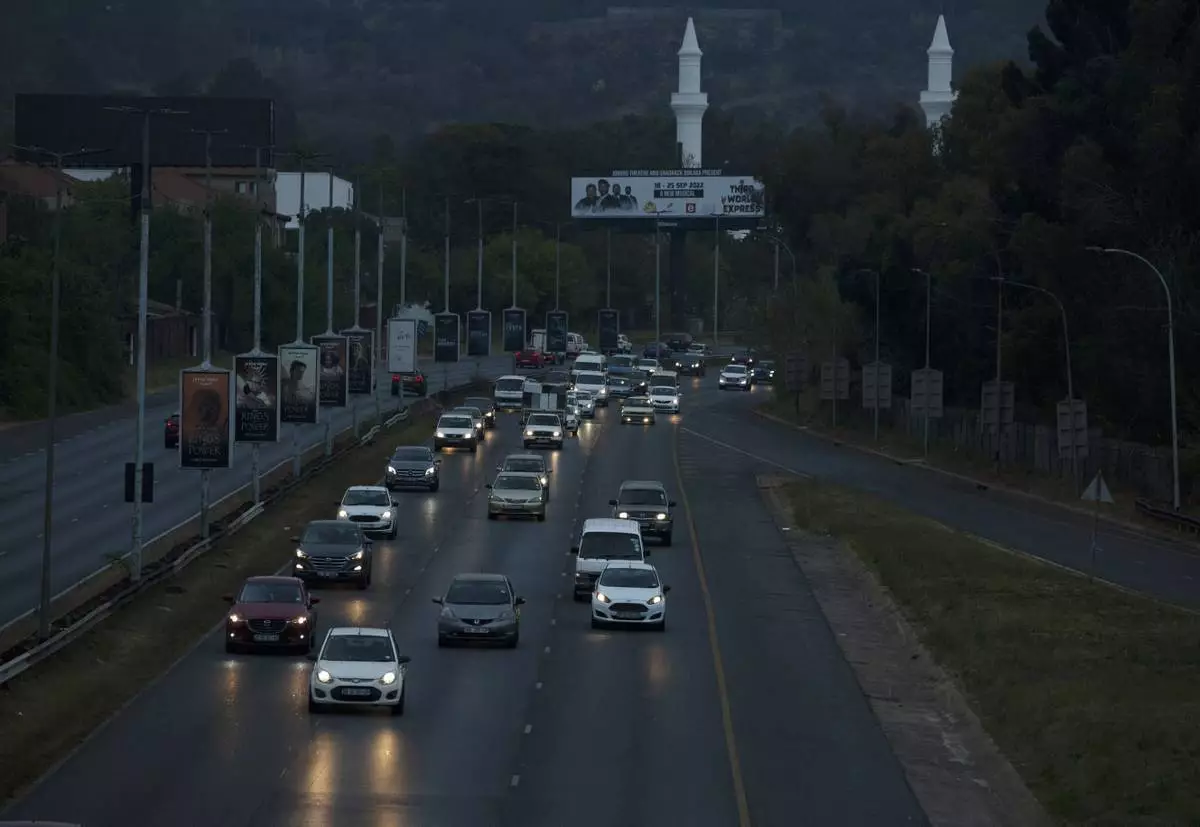
FILE - Cars travel on a normally well-lit section of a freeway during a power outage in Johannesburg on Sept. 21, 2022. Power shortages, unemployment and poverty stand out as the most pressing issues as the country heads to a general election May 29, 2024. (AP Photo/Denis Farrell, File)

File — Residents of the township of Soweto, Johannesburg, South Africa, queue for water Saturday, March 16, 2024. Unemployment and poverty stand out as the most pressing issues for the majority of people in the country as the country heads to a general election May 29, 2024. (AP Photo/Jerome Delay, File)

File — A young girl carrying an empty water bottle through a flooded street caused by an overflowing water reservoir in Hammanskraal, Pretoria, South Africa, Friday, May 26, 2023 during a cholera outbreak. Unemployment and poverty stand out as the most pressing issues for the majority of people in the country as the country heads to a general election May 29, 2024. (AP Photo/Themba Hadebe,File)

An array of election posters from various political parties are displayed on poles in Pretoria, South Africa, Thursday, May 16, 2024. (AP Photo/Themba Hadebe)

An array of election posters from various political parties are displayed on poles in Pretoria, South Africa, Thursday, May 16, 2024. (AP Photo/Themba Hadebe)

An array of election posters from various political parties are displayed on poles in Pretoria, South Africa, Thursday, May 16, 2024. (AP Photo/Themba Hadebe)



